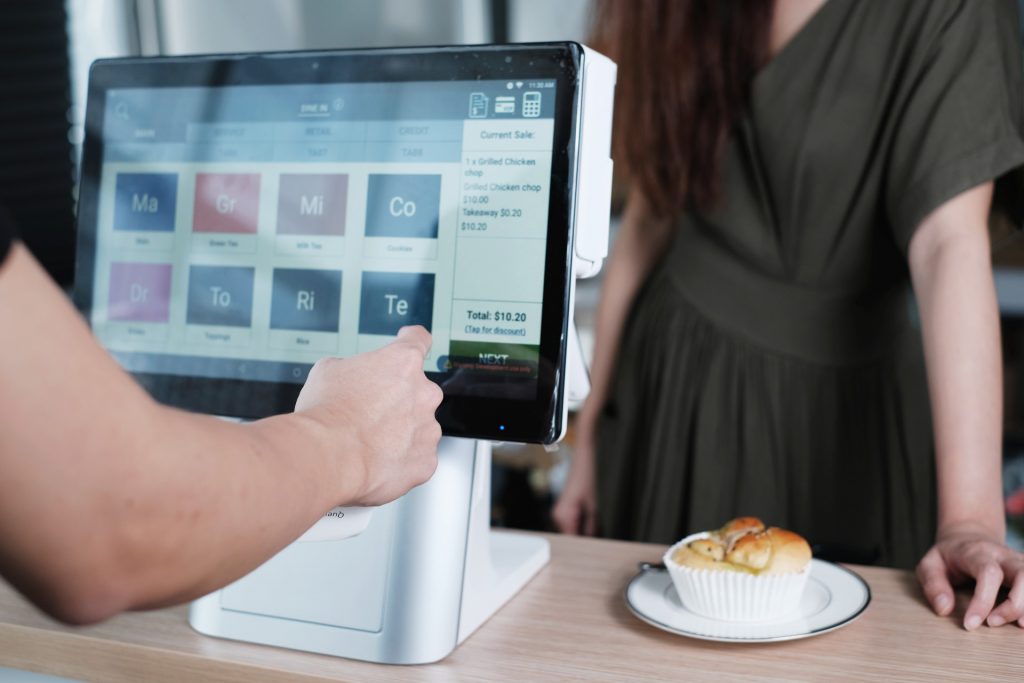The foodservice industry is a highly competitive one, and one of the keys to success is customer retention. To have loyal customers come back again and again, you’ll need a combination of both good food and great customer service. You’ll want your food business to reach as many customers as possible. In Singapore, almost everyone you know is a foodie and with great quality food, it makes it easier to convince anyone to give your restaurant a try.
Now if you’re running a cash-only restaurant, you’re missing out on greater profit potential as more Singaporeans are starting to adopt cashless payment in tandem with the government’s hope of making Singapore a cashless society by the year 2025.
Although a small, independent food kiosk or hawker stalls may be indifferent from the cash-only business model, a full-service restaurant, café, or bistro would be turning customers away by refusing alternative payment methods.
Instead of limiting your food business, using a point of sale (POS) system will greatly benefit your business in the long run.
Why having a POS system is beneficial for restaurants
A POS system for restaurants is different from those that are tailored for retail stores and boutiques as you might not need a barcode scanner or a label printer in order to have an efficient business operation.
Aside from providing your customers with various payment methods, having a POS system for your restaurant can benefit you in many ways, including helping you manage your customer orders, your inventory and staff schedule. Ahead, we’ll discuss the benefits of a POS system for restaurants.
Streamline billing operations
From the moment when a customer steps into your restaurant to the end of their visit, your billing process plays a great role in ensuring that the overall experience delivered is top-notch. With a POS system for restaurants, it can help keep track of customer orders, table occupancy, and kitchen operations.
Additionally, a POS system for restaurants may allow split billing when requested by your customers. This makes things easier for both your cashier and customer as it reduces the need to recalculate the bill.
With the growth of online ordering in Singapore, some restaurant’s POS systems can also receive orders from various delivery platforms and send them to the kitchen. This eliminates the need to manually add the orders received from various online ordering channels. With that, you can add some of your customer details to your CRM database as well.
Monitor stock and inventory
When it comes to making sure that every customer who steps into your restaurant has a chance at tasting your food, you’ll need to closely monitor the number of ingredients in your kitchen. Over-ordering or under-ordering can be disastrous for your food business. With a POS system for restaurants, you can help avoid that from happening.
With an integrated ingredient management system, your POS system will alert you whenever any of your stock items reach their reorder level. This will help you to manage your stock better and ensure that your kitchen never runs out of stock.
Build business clientele
What’s a business without its loyal customers? As a restaurant owner, your food business pretty much relies on customers’ support because, without them, your restaurant is just another food business. Hence, you must always try to cultivate strong relationships with your customers.
With a POS system for restaurants, it can help build your business clientele by managing your CRM database. Also, it gives you the ability to send personalised messages and emails informing your customers about the latest promotions at your restaurant. Loyalty programmes integrated with CRM are also a great way to increase customer retention.
Get real-time data and reports
Aside from your intuition and business insights, you also have to rely on data to run a profitable business. You will need accurate data to help develop effective strategies and make smart decisions for your food business. Without accurate data, you may make a wrong decision, which can cost you money.
A POS system for restaurants can help boost sales and profit by identifying the bestselling or worst-selling menu, giving you useful insights to come up with better marketing strategies.
Improve employee management
On top of managing your food business, you also have to manage your employees. If you’re running a small restaurant, things can get out of hand very easily if your employees do not cooperate to provide the best of services to your customers.
With an integrated employee management software, you can easily calculate commissions and salaries. Sales can also be tagged to employees’ names and their working hours tracked. This allows you to easily identify your best employees so that their performance can be rewarded.
Additionally, you can assign different access roles (like the cashier or store manager) on the POS system to restrict functions that are not relevant to their roles. That way, only authorised employees can perform administrative changes like bill refunds.
While the benefits of having a POS system for restaurants outweigh the cons of having one, you have to consider that the system also has its drawbacks. A POS system is fundamentally a computer and is subject to every technological whim such as system crashes, server outages, or network issues.
If your POS system happens to crash and you don’t have a backup, you risk losing all your data along with your sales, profit and loss statements, and payroll statements. You will have to input all the information again, which can be a waste of time and money. So, always have a backup to prevent such disruption.
Traditional vs Smart POS System for Restaurants
Just as there are many different types of restaurants, the types of POS system for each restaurant also differ because not all POS systems are designed the same. In this section, we’ll discuss the differences between traditional (legacy) and smart POS systems.
Data Management
Traditional POS systems typically rely on local servers and closed networks to store data that are relevant for your restaurant. This means you can only access the data where the POS system is locally set up, i.e. your restaurant.
Smart POS system, on the other hand, relies on a cloud-based server and an internet connection, which means data is stored online. Whether you’re near or far from your restaurant, you can always access and manage the data in real-time from any device.
Hardware Design
Most traditional POS systems for restaurants tend to be big and can take up a lot of space on the counter. A smart POS system like Qashier, however, integrates all the accompanying components into one device – dual screens, a receipt printer, and a card reader. This reduces the amount of space you need on the counter.
Hardware Cost
Traditional POS systems generally require high upfront payments as the terminal and its accessories need to be set up on-site. This means more labour and time is spent on maintaining it. Should the system crash, re-installation costs could be costly.
On the contrary, installing a smart POS system isn’t as complex as a traditional POS system. Usually, it requires minimal upfront costs with an affordable monthly or yearly subscription fee. This makes it ideal for small cafe and restaurant owners as they do not have to spend much money upfront.
System Features
Customising a traditional POS system for your restaurant can be tricky. In most cases, businesses have to use the hardware and software for what it is, which can be inconvenient to your foodservice business operations. A smart POS system, however, allows you to customise and personalise the features of the software to align with your business needs.
From the differences that we’ve highlighted above, it’s clear that a smart POS system outweighs the traditional POS system. As a restaurant owner, you should use a POS system that offers more benefits than disadvantages to ensure that your food business runs smoothly.
With Qashier’s smart POS system, it’ll help you automate the many different tasks and grow your sales. For more information, contact us at (+65) 3165 0152, WhatsApp (+65) 9006 7233 or email [email protected]/my.


